#space settlement
Text
Kelly and Zach Weinersmith’s “A City On Mars”
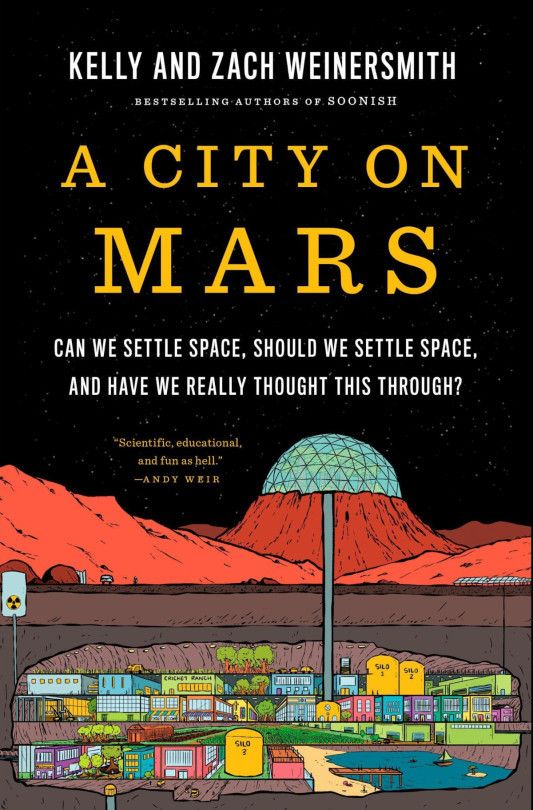
In A City On Mars, biologist Kelly Weinersmith and cartoonist Zach Weinersmith set out to investigate the governance challenges of the impending space settlements they were told were just over the horizon. Instead, they discovered that humans aren't going to be settling space for a very long time, and so they wrote a book about that instead:
https://www.acityonmars.com/
The Weinersmiths make the (convincing) case that ever aspect of space settlement is vastly beyond our current or reasonably foreseeable technical capability. What's more, every argument in favor of pursuing space settlement is errant nonsense. And finally: all the energy we are putting into space settlement actually holds back real space science, which offers numerous benefits to our species and planet (and is just darned cool).
Every place we might settle in space – giant rotating rings, the Moon, Mars – is vastly more hostile than Earth. Not just more hostile than Earth as it stands today – the most degraded, climate-wracked, nuke-blasted Earth you can imagine is a paradise of habitability compared to anything else. Mars is covered in poison and the sky disappears under planet-sized storms that go on and on. The Moon is covered in black-lung-causing, razor-sharp, electrostatically charged dust. Everything is radioactive. There's virtually no water. There are temperature swings of hundreds of degrees every couple of hours or weeks. You're completely out of range of resupply, emergency help, or, you know, air.
There's Helium 3 on the Moon, but not much of it, and there is no universe in which is it cheaper to mine for Helium 3 on the Moon than it is to mine for it on Earth. That's generally true of anything we might bring back from space, up to and including continent-sized chunks of asteroid platinum.
Going to space doesn't end war. The countries that have gone to space are among the most militarily belligerent in human history. The people who've been to space have come back perfectly prepared to wage war.
Going to space won't save us from the climate emergency. The unimaginably vast trove of material and the energy and advanced technology needed to lift it off Earth and get it to Mars is orders of magnitude more material and energy than we would need to resolve the actual climate emergency here.
We aren't anywhere near being a "multiplanetary species." The number of humans you need in a colony to establish a new population is hard to estimate, but it's very large. Larger than we can foreseeably establish on the Moon, on Mars, or on a space-station. But even if we could establish such a colony, there's little evidence that it could sustain itself – not only are we a very, very long way off from such a population being able to satisfy its material needs off-planet, but we have little reason to believe that children could gestate, be born, and grow to adulthood off-planet.
To top it all off, there's space law – the inciting subject matter for this excellent book. There's a lot of space law, and while there are some areas of ambiguity, the claims of would-be space entrepreneurs about how their plans are permissible under the settled parts of space law don't hold up. But those claims are robust compared to claims that space law will simply sublimate into its constituent molecules when exposed to the reality of space travel, space settlement, and (most importantly) space extraction.
Space law doesn't exist in a vacuum (rimshot). It is parallel to – and shares history with – laws regarding Antarctica, the ocean's surface, and the ocean's floor. These laws relate to territories that are both vastly easier to access and far more densely populated by valuable natural resources. The fact that they remain operative in the face of economic imperatives demands that space settlement advocates offer a more convincing account than "money talks, bullshit walks, space law is toast the minute we land on a $14 quadrillion platinum asteroid."
The Weinersmiths have such an account in defense of space law: namely, that space law, and its terrestrial analogs, constitute a durable means of resolving conflicts that would otherwise give rise to outcomes that are far worse for science, entrepreneurship, human thriving or nation-building than the impediments these laws represent.
What's more, space law is enforceable. Not only would any space settlement be terribly, urgently dependent on support from Earth for the long-foreseeable future, but every asteroid miner, Lunar He3 exporter and Martian potato-farmer hoping to monetize their products would have an enforcement nexus with a terrestrial nation and thus the courts of that nation.
But the Weinersmiths aren't anti-space. They aren't even anti-space-settlement. Rather, they argue that the path to space-based scientific breakthroughs, exploration of our solar system, and a deeper understanding of our moral standing in a vast universe cannot start with space settlements.
Landing people on the Moon or Mars any time soon is a stunt – a very, very expensive stunt. These boondoggles aren't just terribly risky (though they are – people who attempt space settlement are very likely to die horribly and after not very long), they come with price-tags that would pay for meaningful space science. For the price of a crewed return trip to Mars, you could put multiple robots onto every significant object in our solar system, and pilot an appreciable fleet of these robot explorers back to Earth with samples.
For the cost of a tiny, fraught, lethal Moon-base, we could create hundreds of experiments in creating efficient, long-term, closed biospheres for human life.
That's the crux of the Weinersmiths' argument: if you want to establish space settlements, you need to do a bunch of other stuff first, like figure out life-support, learn more about our celestial neighbors, and vastly improve our robotics. If you want to create stable space-settlements, you'll need to create robust governance systems – space law that you can count on, rather than space law that you plan on shoving out the airlock. If you want humans to reproduce in space – a necessary precondition for a space settlement that lasts more than a single human lifespan – then we need to do things like breed multiple generations of rodents and other animals, on space stations.
Space is amazing. Space science is amazing. Crewed scientific space missions are amazing. But space isn't amazing because it offers a "Plan B" for an Earth that is imperiled by humanity's recklessness. Space isn't amazing because it offers unparalleled material wealth, or unlimited energy, or a chance to live without laws or governance. It's not amazing because it will end war by mixing the sensawunda of the "Pale Blue Dot" with the lebensraum of an infinite universe.
A science-driven approach to space offers many dividends for our species and planet. If we can figure out how to extract resources as dispersed as Lunar He3 or asteroid ice, we'll have solved problems like extracting tons of gold from the ocean or conflict minerals from landfill sites, these being several orders of magnitude more resource-dense than space. If we can figure out how to create self-sustaining terraria for large human populations in the radiation-, heat- and cold-blasted environs of space, we will have learned vital things about our own planet's ecosystems. If we can build the robots that are necessary for supporting a space society, we will have learned how to build robots that take up the most dangerous and unpleasant tasks that human workers perform on Earth today.
In other words, it's not just that we should solve Earth's problems before attempting space settlement – it's that we can't settle space until we figure out the solutions to Earth's problems. Earth's problems are far simpler than the problems of space settlement.
As I read the Weinersmiths' critique of space settlement, I kept thinking of the pointless AI debates I keep getting dragged into. Arguments for space settlement that turn on existential risks (like humanity being wiped out by comets, sunspots, nuclear armageddon or climate collapse) sound an awful lot like the arguments about "AI safety" – the "risk" that the plausible sentence generator is on the verge of becoming conscious and turning us all into paperclips.
Both arguments are part of a sales-pitch for investment in commercial ventures that have no plausible commercial case, but whose backers are hoping to get rich anyway, and are (often) sincerely besotted with their own fantasies:
https://locusmag.com/2023/12/commentary-cory-doctorow-what-kind-of-bubble-is-ai/
Both AI and space settlement pass over the real risks, such as the climate consequences of their deployment, or the labor conditions associated with their production. After all, when you're heading off existential risk, you don't stop to worry about some carbon emissions or wage theft.
And critically, both ignore the useful (but resolutely noncommercial) ways that AI or space science can benefit our species. AI radiology analysis might be useful as an adjunct to human radiological analysis, but that is more expensive, not less. Space science might help us learn to use our materials more efficiently on Earth, and that will come long before anyone makes rendezvous with a $14 quadrillion platinum asteroid.
There are beneficial uses for LLMs. When the Human Rights Data Analysis Group uses an LLM to help the Innocence Project New Orleans extract and categorize officer information from wrongful conviction records, they are doing something valuable and important:
https://hrdag.org/tech-notes/large-language-models-IPNO.html
It's socially important work, a form of automation that is an unalloyed good, but you won't hear about it from LLM advocates. No one is gonna get rich on improving the efficiency of overturning wrongful convictions with natural language processing. You can't inflate a stock bubble with the Innocence Project.
By the same token, learning about improving gestational health by breeding multigenerational mouse families in geosynchronous orbit is no way to get a billionaire tech baron to commit $250 billion to space science. But that's not an argument against emphasizing real science that really benefits our whole species. It's an argument for taking away capital allocation authority from tech billionaires.
I'm a science fiction writer. I love stories about space. But I can distinguish fantasy from reality and thought experiments from suggestions. Kim Stanley Robinson's 2015 novel Aurora – about failed space settlement – is every bit as fascinating and inspirational as "golden age" sf:
https://memex.craphound.com/2015/11/02/kim-stanley-robinsons-aurora-space-is-bigger-than-you-think/
But still, it inspired howls of outrage from would-be space colonists. So much so that Stan wrote a brilliant essay explaining what we were all missing about space settlement, which I published:
https://boingboing.net/2015/11/16/our-generation-ships-will-sink.html
With City on Mars, the Weinersmiths aren't making the case for giving up on space, nor are they trying to strip space of its romance and excitement. They're trying to get us to focus on the beneficial, exciting, serious space science we can do right now, not just because it's attainable and useful – but because it is a necessary precondition for any actual space settlement in the distant future.

If you'd like an essay-formatted version of this post to read or share, here's a link to it on pluralistic.net, my surveillance-free, ad-free, tracker-free blog:
https://pluralistic.net/2024/01/09/astrobezzle/#send-robots-instead
#pluralistic#books#reviews#space#bezzles#mars#spacex#robots#science#space science#space travel#space settlement#space colonization
1K notes
·
View notes
Text
So I've been reading through A City on Mars(it's engaging, well-written, and Funny. If you have any interest at all in space exploration and settlement, I thoroughly recommend checking it out) and, beyond everything else, I just want to say how Fucking Gross space-travel is. Just absolutely Disgusting. My God: why would anybody do this? Why would ANYBODY want to Put Themselves through this?? Zeus above it's So Vile. Don't worry, I'm not going to share the details here, you can read the book yourselves if you want to know but, Sincerely, Yuck :| Yuck Yuck Yuck :| :| I'll wait until we've mastered the Amenities, thank you very much X| X| X|
#Kelly Weinersmith#Zach Weinersmith#A City on Mars#Space#Space Travel#Space Settlement#SciFi#Terrible Space Facts#Our Staff#zA Opinions#zA Writes
8 notes
·
View notes
Text
A City on Mars
It's really good!
"A City on Mars" is the newest popular science book by Kelly and Zach Weinersmith (@zachweinersmith). Besides their popular science books, they're mostly known for @smbc-comics (like xkcd but sometimes meaner and in color). This book deals with the question of space settlement: Where can we settle in space, how would we settle in space, which questions are still unanswered, and is this even a good idea? They review all the applicable research to come up with answers.
Interestingly, the answer to the question "is this a good idea?" turns out to be no, even to the author's surprise. As a result, they expect that the space settlement community, who helped a lot with creating the book, will absolutely hate it. My guess is that here on Tumblr, the conclusion "we shouldn't let Elon Musk and Jeff Bezos use their incredible wealth to build weird semi-independent company-controlled colonies on foreign planets" will prove to be rather popular. I think they make good arguments for their point of view. They conclude that if we want to do space settlement, the best solution is to "wait and go big". That means first do a lot of research, maybe with some temporary research outposts, and only then start with a long-term settlement once we worked out most of the kinks. And that first settlement should be very big, at least in the thousands of people, from basically the start, because anything less than that will cause way too many problems.
The book itself is really well written, full of fun anecdotes and drawings, and it makes all of its topics accessible without ever feel like it's talking down to people. It's funny, informative and well researched. If I have any criticism, it's that I almost wish it was twice as long. Its goal is to provide an overview into a field that is incredibly broad, reaching from physics, geophysics and biology all the way to international law and philosophical questions about property rights, and it does an admirable job with all of them. But the book can't go into too much depth on any of these issues, and some (like how an economy on such a settlement would be set up) needed to be skipped entirely. There's more than enough material here to write at least two to three more books like this, and I would absolutely love to read them if they ever happen.
But really, this book is great. I intended to only look into the first chapter yesterday, and accidentally ended up reading through all of it. Very much recommended.
#a city on mars#space exploration#space settlement#this has nothing to do with the rocket test yesterday the book just happened to arrive on the same day for me
11 notes
·
View notes
Text
multiplanetary destiny is just manifest destiny in late capitalist society in this essay I will
7 notes
·
View notes
Text






O'Neill cylinder type space settlement by Wave Models.
#space station#gundam#wave#oneill cylinder#space settlement#complete#model kit#scifi#science#space#future
48 notes
·
View notes
Text

#art#alien planet#colonization#space settlement#future#ai#future technology#aiart#terraforming#digitalart
0 notes
Text

0 notes
Text
The Ethics of Space Settlement?
I was watching this video and thought up comments, ‘As I do?’, but thought to keep it simple. Most of the questions about workers’ rights I had to think about, for a second.
‘Oh, Erika thinks that humans will be working in Outerspace.??’
With the advances of Artificial Narrow Intelligent Humanoid Robots, the humans will be working remotely with Virtual Reality headset and a game pad, if not a…
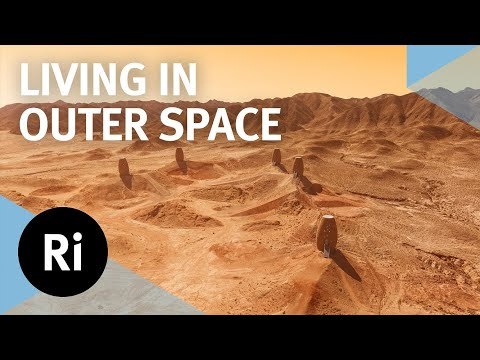
View On WordPress
0 notes
Text


happy space holidays from your metroid friends. featuring a glimpse at a past federation space christmas party

#i dont think they would celebrate space christmas at the chozo settlement but they would do it just for samus. her special treat.#adam gets told to dress up as santa to increase morale#metroid#samus aran#adam malkovich#metroid fusion#loneart
996 notes
·
View notes
Text
thinking about the Pale of Settlement right now. wonder how many non-Jews even know what that was
72 notes
·
View notes
Photo

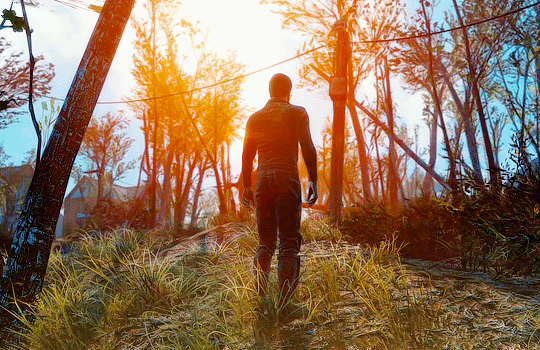
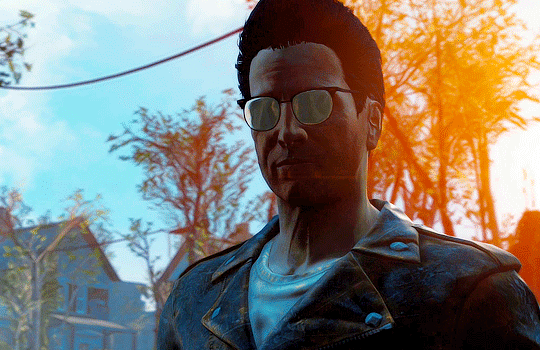
DEACON | Fallout 4
#fallout#fallout 4#deacon#fallout deacon#gamingedit#falloutedit#replaying because i really wanted to build cool settlements but also replaying for my boyfriend deacon#probably won't make a ton of gifs this time though since this game is very long and i'm running out of disk space for captures
339 notes
·
View notes
Text
Todd’s lies are bewitching me I fear…

#well…#these settlements look pretty cool#and also space cowboys…lemme take a seat#starfield#summer game fest#talking
98 notes
·
View notes
Text

Reminiscing 💔
My first time participating in the Obiyuki AU Bingo in years~ the prompt was “video game” so ofc I had to do something Rimworld-related <w< the now-baroness and baron Shirayuki and Obi having a tender moment outside of their settlement, mourning the loss of two of their sons, Dario and Fukuro. They lost their lives to a flu outbreak. As head medic, Shirayuki took their deaths particularly hard.
AnS (c) Akizuki Sorata
Art: Me
#akagami no shirayukihime#ans#snow white with the red hair#obiyuki#obiyuki bingo 2023#rimworld!au#myart#in which we space kitties#i simplified a lot this time to not end up spending a week on every entry#but if i dare say so myself#this came out lovely#cw child death#the jewel in shirayuki’s forehead is the amplifier to her psychic powers#which was granted to her along with her title#obi has one too but idk where#their settlement is called stonefalls#and has been built into the solid rock of a mountain#opening out towards the fells
72 notes
·
View notes
Text
Rereading Tiptree is making me think about space exploration... I still maintain that the whole FTL trillionaire fleet carried a few thousand people at the most. And many of them didn't make it
Thinking about this...
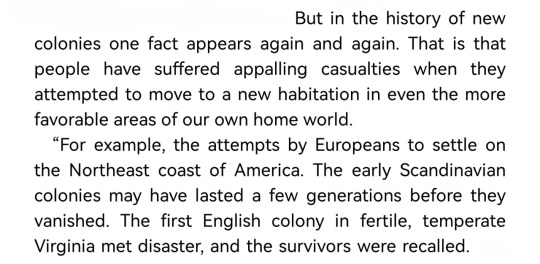

I know that TLT seems to have a very high number of random planets that are suitable for human life compared to what we currently know about our universe + Tazmuir has been known to bend scientific details to suit her storytelling, and also this is a world where planets have souls so who cares about science anyway, but.
BUT. I still think that the FTL fleet was a last resort operation, the ships jumped blind with one (1) chance to settle without being able to count on the resources of a home base, and I think they were almost nearly wiped out.
#it was a SECRET operation and they needed the storage space for supplies#political leaders were left behind on earth! they kept the secret until the end! it wasn't a large scale operation AT ALL#tlt thoughts#FTL fleet#TM is not really writing scifi as much as she's writing character driven horror BUT sometimes scifi elements play a role#and I wonder if we'll ever find out how the FTL settlements fared#IMO The only reason why there are millions (if not billions) of their descendants right now#it's because thousands of years have passed — if not longer#who knows how long it really passed on earth in between the ending of NtN and the Resurrection#TazMuir said that NtN takes place over a HUNDRED THOUSAND years#so who knows#tlt
25 notes
·
View notes
Text

mentally i'm here
#la serreta de alcoi you'll always be famous <3#i feel so close to this archeological site (iberian settlement and sanctuary) cause i did two projects on it for uni#and it's the archaeological site closest to my dad's hometown so we went to the museum and i saw the artifacts with my own eyes#and we wanted to go to the site but it's practically impossible to get there#as you can see in the picture it's on the top of a mountain and the space is very abrupt and complicated#you have to cross a forest while climbing the mountain and there's no place to stop the car or anything. there's like this tiny path that#deviates from the road. no sign or anything. you just need to know la serreta is there#i once looked for how long it would take to climb the mountain to get to the site and it was like 2 hours#and of course like most archaeological sites in this country it's barely taken care of#it's practically abandoned
7 notes
·
View notes
Text
finally got around to entering the icelands and today i am thinking about: the pearl clan is so isolated. like, physically, from the rest of hisui. it's not just that they're so deep in these snowfields that the diamond clan probably can't safely traverse—the icelands themselves are like, almost physically cut off from the rest of hisui. on the one side are these steep cliffs that i really doubt any human could safely traverse without sneasler's aid (and even then, all that ice makes it tough). and all the regions are like that to a certain extent, probably for gameplay and rendering reasons, but. the thing that's really in your face about it is when you do enter the icelands, through this one narrow pass in the ice, you are immediately greeted by a huge fucking ravine carved straight through your easy path. which is like, possible? -but again, very difficult to manage without sneasler's help.
and then once you do get through the ravine or down the cliffs or whatever, the pearl clan settlement is sequestered away in a little niche in the northeasternmost region, as far as possible away from mount coronet and the rest of hisui. like at a certain point it feels like it can't have not been intentional. it's like they wanted that distance.
#the nemesis speaks#pla analysis#snowpoint is here so presumably this settlement existed pre diamond clan conflict...#but maybe they chose it as their single remaining one to retreat to after it#but then there's still the question. why there? specifically? in the first place? when they're so big on all of hisui being sinnoh's space?#idk!
11 notes
·
View notes